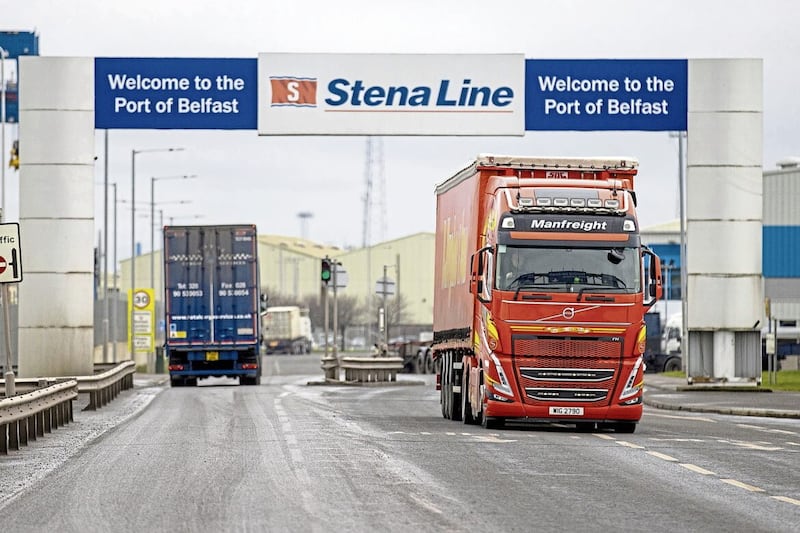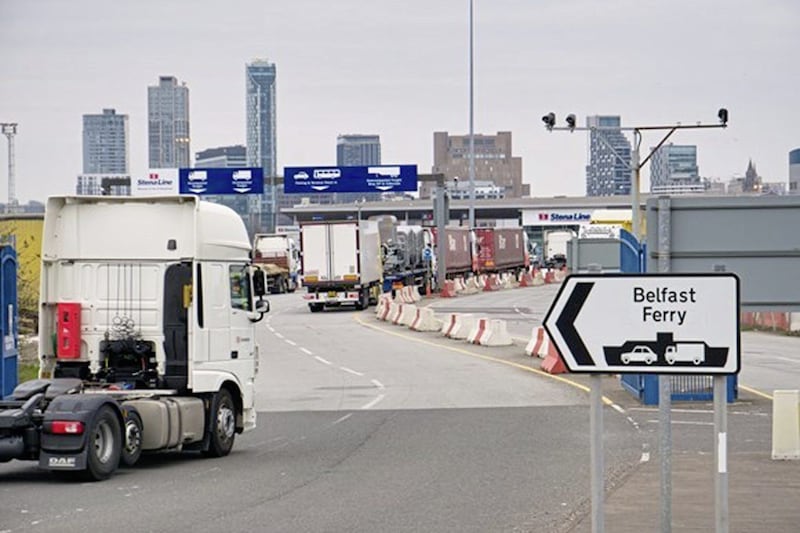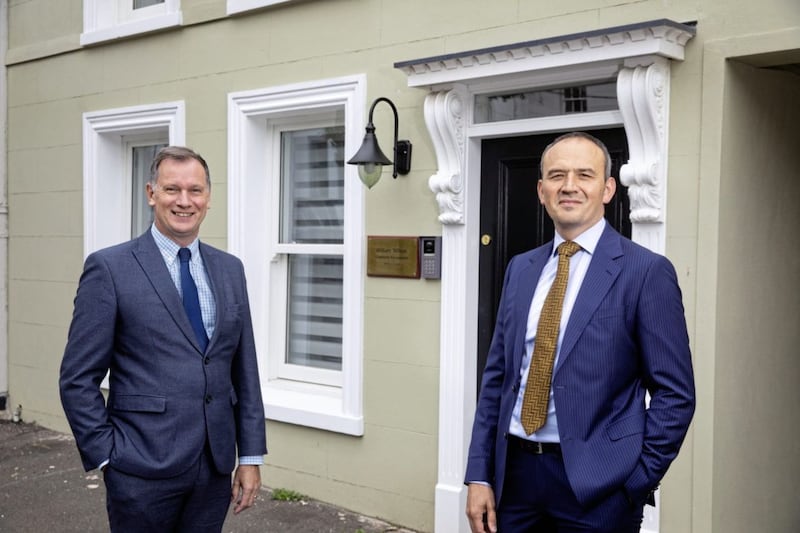FOUR in five of the accountants who are pivotal in running the north's big businesses insist the Protocol “presents a major opportunity” for the Northern Ireland economy.
In a major survey on behalf of the Chartered Accountants Ulster Society, which represents more than 5,000 chartered accountants in the north, they expressed general concerns about energy costs, supply chain disruption and the current political climate.
But some 81 per cent of those questioned say they believe the Protocol is working in favour of the region.
The survey, formulated and analysed by highly respected independent economist Maureen O’Reilly, found that chartered accountants feel that the Protocol issue has been handled poorly, with 80 per cent fearing the impasse is damaging Northern Ireland’s international reputation.
Only two per cent feel that the EU exit has been handled well by the Stormont Executive, rising to five per cent for the UK Government, while the EU scores more highly at 33 per cent.
When asked how EU exit has impacted their business, one in three respondents believe it has had a positive impact on trade, but almost half say there have been negative impacts trading with Britain.
And more than 60 per cent feel there have been negative effects on their business in terms of access to EU workers and increased business costs.
The wide-ranging survey, which garnered the views of 106 northern members of the all-Ireland body, painted a generally healthy picture of the region's economy going forward, but warned of the legacy from the pandemic in terms of changing future working patterns.
Tellingly, given the current political malaise, a mere one per cent rate the performance of the Stormont Executive and Assembly as good, with 78 per cent rate rating it as ‘poor’ or ‘very poor’ and 21 per cent in the 'okay' middle ground.
Maeve Hunt, chair of Chartered Accountants Ulster Society, said: “There are certainly some positive signs of an improving economic outlook as we begin to look towards a post-pandemic future, but it is clear that the last two years have taken a heavy toll on many local businesses.
“Our survey shows a much more optimistic view of growth for the local economy, but we should also remember that we are growing back from a low base due to the impact of Covid and the uncertainty around the UK’s exit from the EU.
“Business leaders are voicing some clear concerns about rising energy costs, supply chain disruption and current political situation in Northern Ireland.”
She added: “Despite some misgivings in the survey about the performance of the Executive and Assembly, it is vital that we have leadership taking key decisions, encouraging business investment and better public services.
“And as Northern Ireland begins to emerge from the Covid pandemic, leadership and real decision-making is needed now more than ever.
“The longer that political instability continues, the more difficult it is for local business to contribute to growth, jobs and a better quality of life in Northern Ireland.”
Among the overall key findings are:
· 66 per cent felt the economy was growing; 19 per cent said it is stagnant; 12 per cent say it is contracting.
· 30 per cent say Northern Ireland is still in a very challenging position in terms of recovery from the pandemic.
· 44 per cent say that the number of businesses in financial distress is increasing (13 per cent say the number is falling.
· 28 per cent feel the outlook for the economy in the year ahead is ‘good’ or ‘very good’; 52 per cent said ‘fair’; 20 per cent said ‘poor’ or ‘very poor’.
·Rising energy costs (45 per cent), supply chain disruption (41 per cent) and political conditions in Northern Ireland (40 per cent) are seen as the most negative issues for the economy.
· 81 per cent say the Protocol represents a major opportunity for the Northern Ireland economy.
· 62 per cent say their business or organisation is experiencing skills shortages (up from 48 per cent in 2020)
· 78 per cent rate the performance of the Executive and Assembly as ‘poor’ or ‘very poor’; 21 per cent rate it as ‘OK’; 1 per cent rate it as ‘good’
· 79 per cent of those surveyed say the NI Executive has weak or very weak capacity and capability for dealing with new devolved tax powers.
· 43 per cent of respondents say that the current non-domestic/business rating system is poor as a basis for taxing property in Northern Ireland, while only 7 per cent view it as good.
· 56 per cent believe that hybrid working patterns will be most common in the year ahead.







